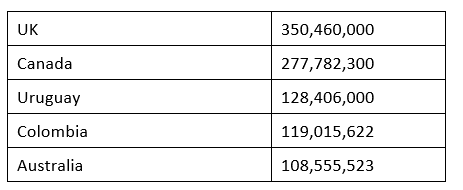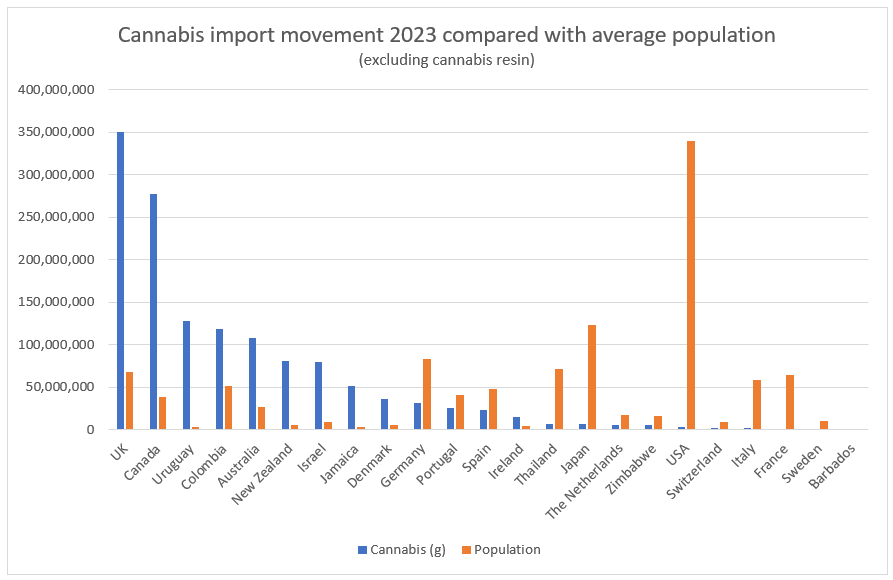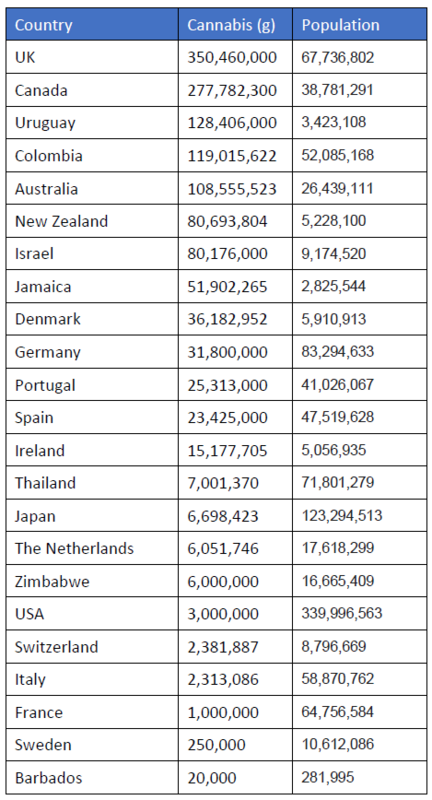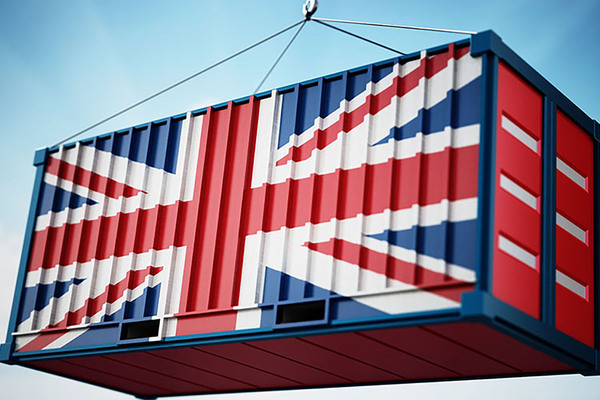Recent statistics from the UN International Narcotics Control system have thrown into sharp relief the United Kingdom's dominant position in the global cannabis landscape. With 350.5 tonnes of cannabis entering the country, the UK surpasses all other nations in this metric.
To put this into perspective, Canada, a country with a well-established cannabis industry, follows at 277.8 tonnes, while Uruguay, the first country to legalise cannabis, stands at 128.5 tonnes.

The International Narcotics Control Board (INCB), responsible for compiling this data, is an independent, quasi-judicial body that plays a key role in the global governance of narcotics, including cannabis. Established by the Single Convention on Narcotic Drugs of 1961, the INCB has its roots in the Permanent Central Narcotics Board and the Drug Supervisory Body. These entities were created by international conventions dating back to 1925 and 1931 respectively, and they aimed at limiting the manufacture and regulating the distribution of narcotic drugs.
So what does the UK's leading position mean for its cannabis industry and how does it tie in with INCB's regulations? It is the opinion of Sian Phillips, Executive Director of the Cannabis Trades Association (CTA), this phenomenon signifies the UK's proactive approach towards recognising the medicinal and economic benefits of cannabis.
"It's not just about the high volume," Phillips explains. "It’s about how the UK is positioning itself as a hub for cannabis research, medical applications, and as a potential leader in ethical cannabis trading."

The UK has been increasingly open to the usage of cannabis for medical treatments since December 2018. The NHS was given permission to prescribe cannabis-based medicinal products for conditions like epilepsy, nausea caused by chemotherapy, and multiple sclerosis, but has been very risk aware. Since then, private enterprises and clinics have invested heavily in cannabis outreach to new patients and legacy users. Research, focusing on everything from the plant’s therapeutic properties to its potential use in consumer products continues.
However, it's crucial to note that the UK's high volume of cannabis importation also comes with responsibilities. The INCB's guidelines require that such imports be used for legitimate medical and scientific purposes, and not for adult use. The INCB monitors and audits countries to ensure compliance, and any deviation could put the UK under international scrutiny.

Given the INCB's role in regulating international cannabis trade, the UK's current status poses both opportunities and challenges. On one hand, the sheer volume of cannabis entering the country showcases its readiness to be a key player in this burgeoning sector. On the other hand, it brings with it the onus of stringent regulatory compliance.
In conclusion, the latest statistics from the UN International Narcotics Control system provide more than just numbers; they offer a narrative of the UK's ambitious plans for its cannabis industry. Balancing this enthusiasm with the regulatory guidelines set forth by the INCB will be the true test of the UK's commitment to establishing a sustainable and responsible cannabis sector.
https://www.incb.org/documents/Narcotic-Drugs/Status-of-Estimates/2023/EstAug23.pdf






